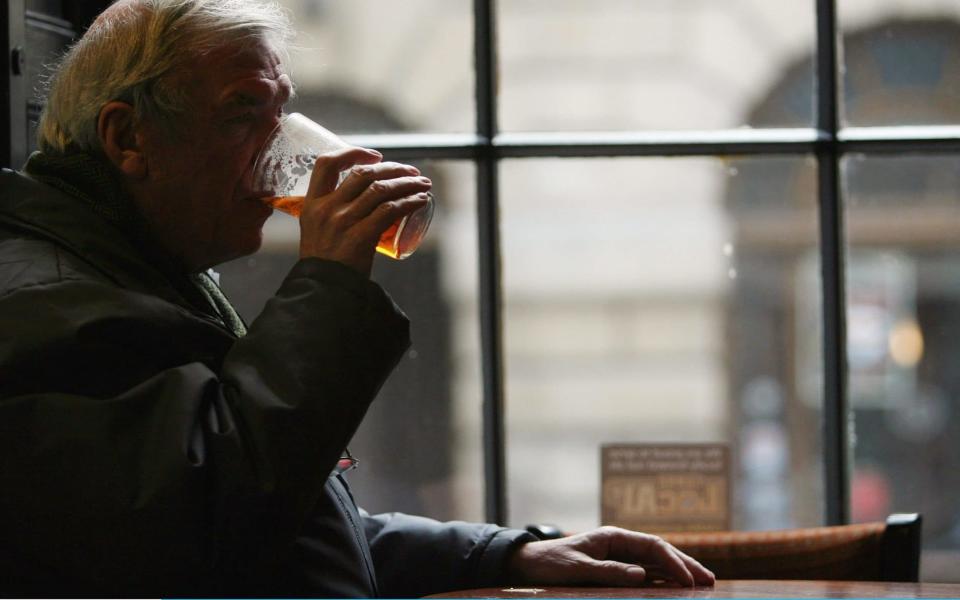People more likely to binge drink in colder countries, study finds

Alcohol consumption is higher in colder countries with less sunlight, a new study has found.
The research, carried out by the Pittsburgh Liver Research Centre in the US, revealed people living in chillier climates were more likely to binge drink.
Britain was named among the countries which showed high levels of heavy drinking and low numbers of sunlight hours.
Examining data from 193 countries, evidence showed climate contributed to a higher rate of binge drinking and liver disease.
Researchers used information from the World Health Organisation (WHO) and the World Meteorological Organisation as part of their study.
Belarus, where sun is rarely seen from November until February, was named as the country with the highest levels of binge drinking. The average citizen consumes 17.5 litres of alcohol a year, according to figures.
Meanwhile neighbouring Russia, home to the coldest inhabited town on earth, showed residents were drinking in similarly large quantities. Russians on average consume 11.1 litres of alcohol a year. The country meanwhile has a low number of sunlight hours over winter periods.
Senior author Ramon Bataller, associate director of the Pittsburgh Liver Research Centre, said: "This is the first study that systematically demonstrates that worldwide in colder areas and areas with less sun, you have more drinking and more alcoholic cirrhosis."
Alcohol is a vasodilator, relaxing blood vessels and increasing the flow of warm blood to the skin.
Drinking also is linked to depression, which tends to be more prevalent when sunlight is scarce.
Dr Peter McCann, medical adviser to Castle Craig Hospital, a residential drug and alcohol rehabilitation clinic in the Scottish Borders, contributed to the report.
He told The Telegraph: "When the sun goes down and the temperature goes down, alcohol consumption goes up.
"What is interesting is the correlation between sunshine hours and alcohol consumption. In Mediterranean countries such as Spain we found a lot of alcohol was being consumed but in a steady pattern.
"Whereas in colder countries with less sunshine, such as Britain, there is more of an emphasis on heavy drinking. Northern European countries show a higher prevalence for binge drinking."
Dr McCann said there are several factors which could be the reason why some countries were more receptive to alcohol.
He said: "In its early stages alcohol causes euphoria and can be beneficial to people in improving their mood and making them feel good." He said it might be the case that people living in darker parts of the world sought alcohol as a means to cheer themselves up.
Dr McCann added: "We now have new evidence that the weather, and in particular the temperature and amount of sunlight that we are exposed to, has a strong influence on how much alcohol we consume.
"Furthermore this weather-related alcohol consumption is directly linked to our chances of developing the most dangerous form of liver disease - cirrhosis - which can ultimately end in liver failure and death."
He said it was time stricter laws on alcohol pricing were considered to combat the effect of low sunlight and cheaper alcohol on consumption.
Dr McCann said: "Advertising laws should be addressed with restrictions during winter months strongly considered."
Evidence of the climate link comes as the WHO presents new data on alcohol consumption in Europe at a summit in Edinburgh today (Monday).
It says levels remain high and that almost half of the adult male population are at risk of both short and long-term health and social problems due to harmful drinking patterns.
Earlier this year, legislation on minimum pricing for alcohol came into force in Scotland in a bid to tackle problem drinking.

 Yahoo News
Yahoo News 